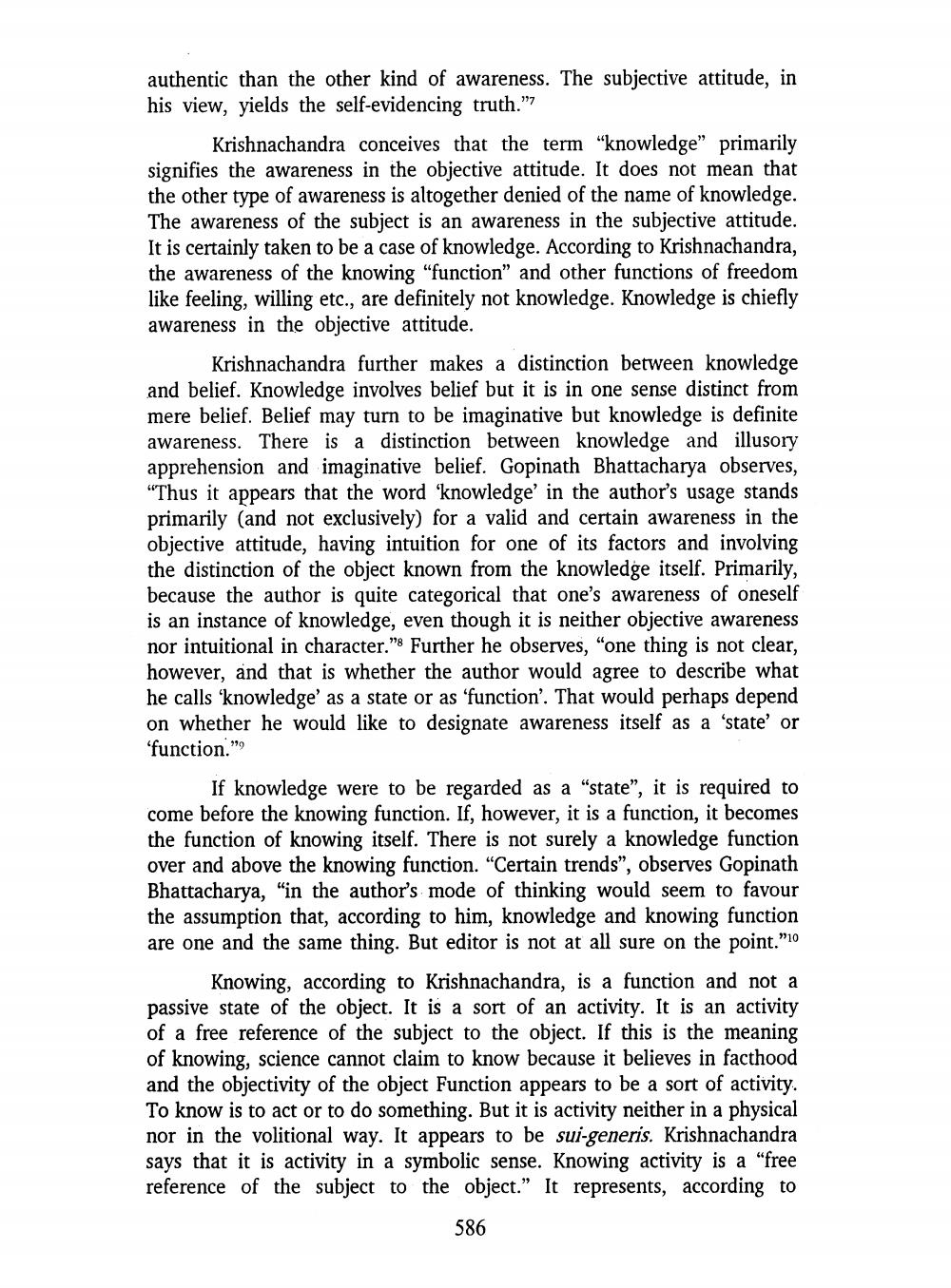________________
authentic than the other kind of awareness. The subjective attitude, in his view, yields the self-evidencing truth."
Krishnachandra conceives that the term "knowledge" primarily signifies the awareness in the objective attitude. It does not mean that the other type of awareness is altogether denied of the name of knowledge. The awareness of the subject is an awareness in the subjective attitude. It is certainly taken to be a case of knowledge. According to Krishnachandra, the awareness of the knowing "function” and other functions of freedom like feeling, willing etc., are definitely not knowledge. Knowledge is chiefly awareness in the objective attitude.
Krishnachandra further makes a distinction between knowledge and belief. Knowledge involves belief but it is in one sense distinct from mere belief. Belief may turn to be imaginative but knowledge is definite awareness. There is a distinction between knowledge and illusory apprehension and imaginative belief. Gopinath Bhattacharya observes, "Thus it appears that the word 'knowledge in the author's usage stands primarily (and not exclusively) for a valid and certain awareness in the objective attitude, having intuition for one of its factors and involving the distinction of the object known from the knowledge itself. Primarily, because the author is quite categorical that one's awareness of oneself is an instance of knowledge, even though it is neither objective awareness nor intuitional in character." Further he observes, "one thing is not clear, however, and that is whether the author would agree to describe what he calls 'knowledge as a state or as 'function'. That would perhaps depend on whether he would like to designate awareness itself as a 'state' or 'function."
If knowledge were to be regarded as a "state", it is required to come before the knowing function. If, however, it is a function, it becomes the function of knowing itself. There is not surely a knowledge function over and above the knowing function. "Certain trends", observes Gopinath Bhattacharya, “in the author's mode of thinking would seem to favour the assumption that, according to him, knowledge and knowing function are one and the same thing. But editor is not at all sure on the point."10
Knowing, according to Krishnachandra, is a function and not a passive state of the object. It is a sort of an activity. It is an activity of a free reference of the subject to the object. If this is the meaning of knowing, science cannot claim to know because it believes in facthood and the objectivity of the object Function appears to be a sort of activity. To know is to act or to do something. But it is activity neither in a physical nor in the volitional way. It appears to be sui-generis. Krishnachandra says that it is activity in a symbolic sense. Knowing activity is a "free reference of the subject to the object.” It represents, according to
586




